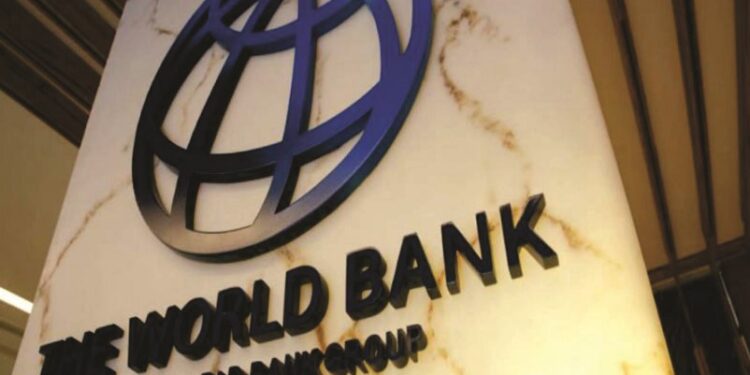World Bank has projected untold hradship and massive poverty escalation in Nigeria.
NewsOnline Nigeria reports that the World Bank has warned that more Nigerians will fall into poverty by 2027.
The warning was issued in the World Bank’s Africa Pulse report, released on Thursday during the ongoing Spring Meetings of the International Monetary Fund (IMF) and World Bank in Washington, DC.
The report’s projection contradicts the claim made nearly a year ago by Wale Edun, Nigeria’s Minister of Finance, who stated the country was “on track to lift many Nigerians out of poverty.”
ALSO: EFCC Declares Four Nigerians Wanted Over ₦1.3 Trillion CBEX Scam (PHOTOS)
In 2024, the World Bank estimated that over half of Nigeria’s population was living in poverty.
The report highlights that sub-Saharan Africa has the highest rate of extreme poverty globally, with the majority of the poor concentrated in a few countries.
According to the data, about 80 percent of the world’s estimated 695 million people living in extreme poverty were located in the region in 2024 — in contrast to 8 percent in South Asia, 2 percent in East Asia and the Pacific, 5 percent in the Middle East and North Africa, and 3 percent in Latin America and the Caribbean.
“Within Sub-Saharan Africa, half of the 560 million extreme poor in 2024 resided in four countries,” the report reads.
Focusing on Nigeria and the Democratic Republic of Congo—both listed as resource-rich but fragile countries—the World Bank projected a “poverty increase of 3.6 percentage points over 2022 to 2027.”
The report also noted that among all country groupings in the region, resource-rich nations are the only ones with rising poverty levels.
“This follows a well-established pattern, whereby resource wealth combined with fragility or conflict is associated with the highest poverty rates—an average poverty rate of 46 percent in 2024, 13 percentage points above non-fragile, resource-rich countries,” the bank stated.
In contrast, non-resource-rich, non-fragile countries have recorded the greatest gains in reducing poverty since 2000. By 2010, they had closed the poverty gap with other non-resource-rich countries and are expected to continue making more progress due to favorable agricultural commodity prices.
On the other hand, resource-rich countries like Nigeria are unlikely to grow at the same pace, especially with falling oil prices.
“As a result, resource-rich countries are expected to see less progress in terms of poverty reduction,” the World Bank added.
The World Bank also suggested that rapid urbanisation could play a key role in reducing poverty—if urban areas can support the growing population.
While most Africans still live in rural areas where poverty is highest, the report found that from 2010 to 2019, poverty reduction was largely driven by urbanisation rather than direct improvements in rural living standards.
“In 2020, only 41 percent of the continent was urbanized, but the urban population is projected to grow by over 238 million by 2035, surpassing the rural population,” the report stated.
“This rapid growth presents opportunities for the rural poor seeking to improve their livelihoods through migration.”
However, the World Bank emphasized that this transition’s success depends on whether cities can provide sufficient infrastructure, public services, and job opportunities to accommodate the influx.






